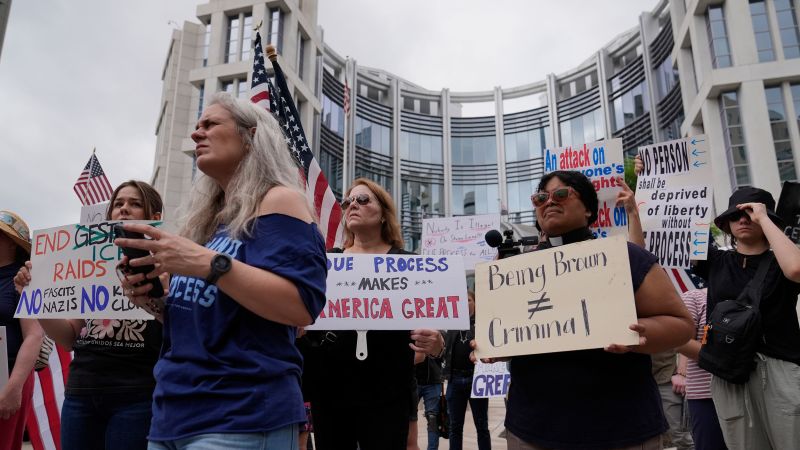In a recent legal development, Kilmar Abrego Garcia, a Salvadoran national, entered a plea of not guilty to federal human smuggling charges. This occurred on a Friday during a significant magistrate judge hearing aiming to determine whether he should remain in custody while awaiting his trial. The background leading to this hearing involves Abrego Garcia being mistakenly deported from the United States three months prior. The substantial charges he faces stem from his alleged involvement in smuggling undocumented immigrants across various states, including Tennessee.
The hearing presented considerable challenges for the prosecutors. They struggled to present convincing arguments about why Abrego Garcia should be detained while awaiting trial. At times, the presiding judge indicated skepticism concerning the Justice Department’s ability to satisfy even the minimal standards required for detaining an accused individual. Although the judge refrained from making an immediate decision regarding his detention, it was suggested that even if the Justice Department’s case fell short, Abrego Garcia might still find himself in immigration detention for an indefinite period due to his previous deportation.
The gravity of the charges against him includes allegations detailing an incident from 2022. It was reported that Abrego Garcia drove a Chevrolet Suburban, which had nine male passengers of Hispanic descent. Prosecutors allege that this was merely one of over 100 trips he undertook during which undocumented individuals were transported across various states, including trips between Texas and Maryland. These accusations position him in the midst of an extensive international smuggling operation, lending a significant weight to the legal matters he faces.
During the hearing, various testimonies came to light, particularly from a special agent with the Department of Homeland Security (DHS), who had been at the forefront of investigating human smuggling networks. The testimonies, however, were met with scrutiny from Abrego Garcia’s defense team. They raised serious questions regarding the credibility and admissibility of the evidence gathered during the traffic stop and labeled some testimonies as coming from so-called “snitches,” thereby undermining the prosecution’s case.
Robert McGuire, serving as the acting U.S. Attorney in Tennessee’s Middle District, firmly argued that Abrego Garcia posed a threat to the local community. Conversely, the defense attorney Dumaka Shabazz contended that the government’s representation of Abrego Garcia had been exaggerated, essentially framing him in a light conducive to their political agenda. Shabazz claimed that the motivations behind labeling him as dangerous lacked justification and were aimed at denying him due process rights.
A larger backdrop looms over this case, particularly given the tensions arising during the Trump administration. The administration has found itself at odds with federal courts as it faces orders to facilitate Abrego Garcia’s return from El Salvador. This conflict has sparked discussions regarding a potential constitutional crisis, illustrating the complex dynamics between government branches and their responses to legal rulings.
Intertwined in this saga is the troubling reality faced by Abrego Garcia’s family. His wife, Jennifer Vasquez Sura, publicly expressed her gratitude towards those advocating for her husband’s release during a news conference held ahead of his arraignment. She shared a poignant message from Kilmar, urging all in similar situations to maintain faith. Vasquez Sura, a U.S. citizen, lamented the toll that the situation has taken, particularly noting the emotional impact it has had on their son, who is currently celebrating important milestones such as kindergarten graduation without his father’s presence.
In efforts to contest his mismanaged deportation, Abrego Garcia’s attorneys have initiated separate proceedings in federal court in Maryland, aiming to impose sanctions against Trump administration officials for the inadequate information provided during his deportation process. This multifaceted legal situation continues to evolve, shedding light on the challenges faced by individuals entangled in the complexities of immigration laws and enforcement practices in the United States. As it stands, this case not only highlights broader issues regarding immigration policy but also underscores the individual struggles of families navigating these turbulent waters.



